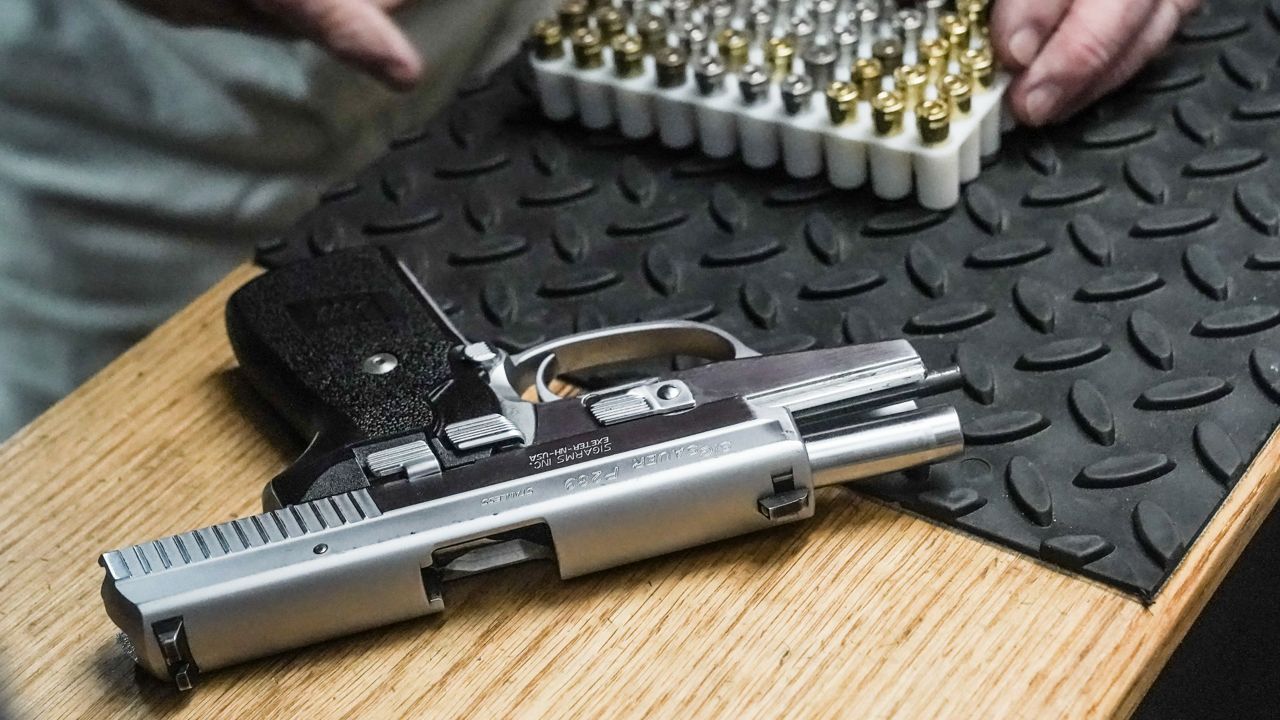North Carolina Gov. Roy Cooper has vetoed a bill that would have done away with North Carolina's requirement for people to get a permit from their local sheriff to buy a handgun.
The veto sets up a showdown with Republicans in the General Assembly. Republicans have a veto-proof majority in the Senate and are one seat short of a supermajority in the House.
Senate Bill 41, Guarantee 2nd Amend Freedom and Protections was ratified and sent to the governor on March 16. Cooper vetoed a similar bill in 2021.
“We need to take steps to keep guns out of the hands of children, criminals and people who are a danger to themselves or others. And this legislation goes backward,” Cooper said on Thursday before vetoing the bill. “It actually takes away an important protection where sheriffs can make decisions about issuing pistol permits that don’t necessarily show up in a federal firearms check.”
Gun rights activists praised the bill’s passage.
“In passing Senate Bill 41, today was a great victory for the Second Amendment,” Paul Valone, president of Grass Roots North Carolina, a pro-gun group, said after the bill passed the General Assembly March 16. “We are confident that we will override the inevitable veto by anti-freedom Governor Roy Cooper.”
North Carolina’s pistol purchase permit system requires people who want to buy a handgun to get a permit from their county sheriff’s office, unless they already have a concealed carry permit. In some counties, the system has been plagued by long delays to get the paperwork needed to buy a handgun.
The permit requirement has been a target of Republican lawmakers.
Before someone can get a purchase permit, the sheriff’s office has to do a state and federal background check, “determine the applicant's good moral character, and determine that the possession of the weapon is for only certain identified purposes.”
People can’t get a permit if they are under indictment for a felony or have a felony conviction.
People with domestic violence protective orders, which are not necessarily picked up through a national background check done by a gun dealer, cannot get a permit from the sheriff's office.
The bill passed by the legislature does away with the purchase permit process, meaning the only background check is through the gun dealer.
The bill includes a new exception allowing people to bring guns to religious services held on private school property. Current law bans guns on all school property.
People would only be allowed to take guns on school property during religious meetings being held outside hours, when students are not there.
This does not include public schools owned by counties or local boards of education, or public and private colleges and universities. Schools could still post notice banning concealed weapons.
The bill also creates a new “firearm safe storage awareness campaign.” The program includes a 2-year safety campaign about how to store guns safely and distributing gun locks.
The campaign would be a collaboration between the Department of Public Safety, the Department of Health and Human Services and the Wildlife Resources Commission.
The votes to pass the bill in both the House and the Senate showed the deep partisan divide over gun regulations. In the House, three Democrats joined every Republican in voting to pass the bill 70-44.
The bill passed in the Senate on a straight party-line vote 29-19.
In both chambers, the bill passed with a veto-proof majority.
The governor issued the veto Friday afternoon. GOP leaders in the General Assembly will likely take the bill back up for a vote on overriding the governor's veto. That would require a supermajority in both the Hosue and the Senate.
The Republicans have the votes they need in the Senate, but would need at least one Democrat to join them to vote to override in the House.









